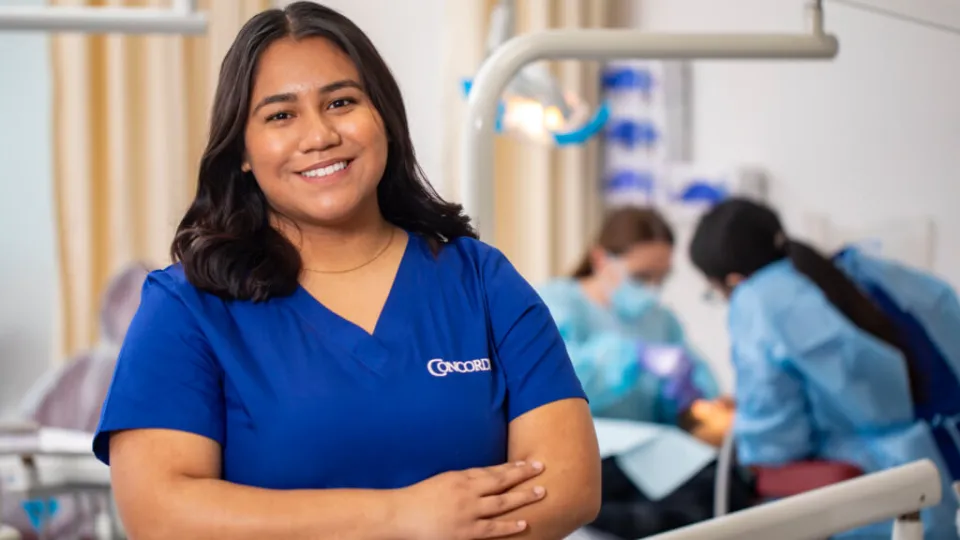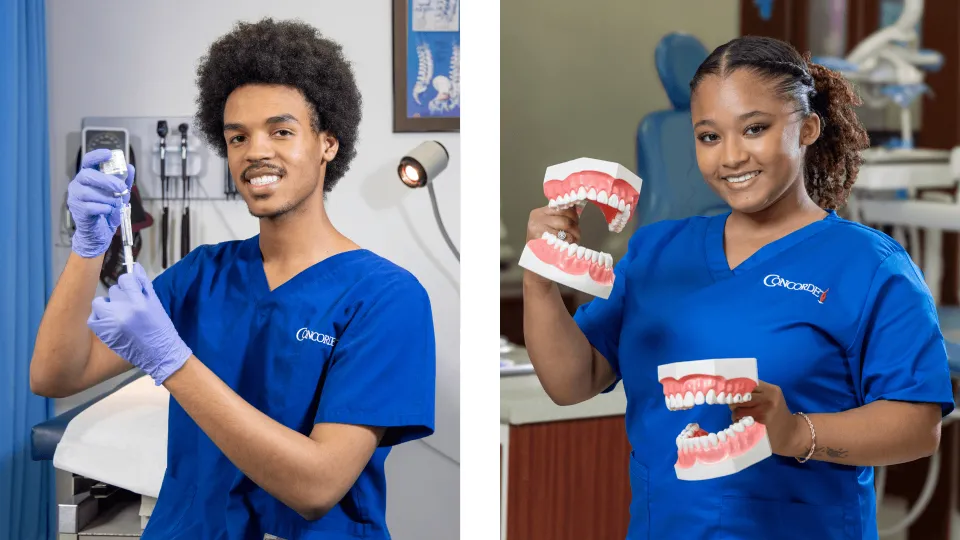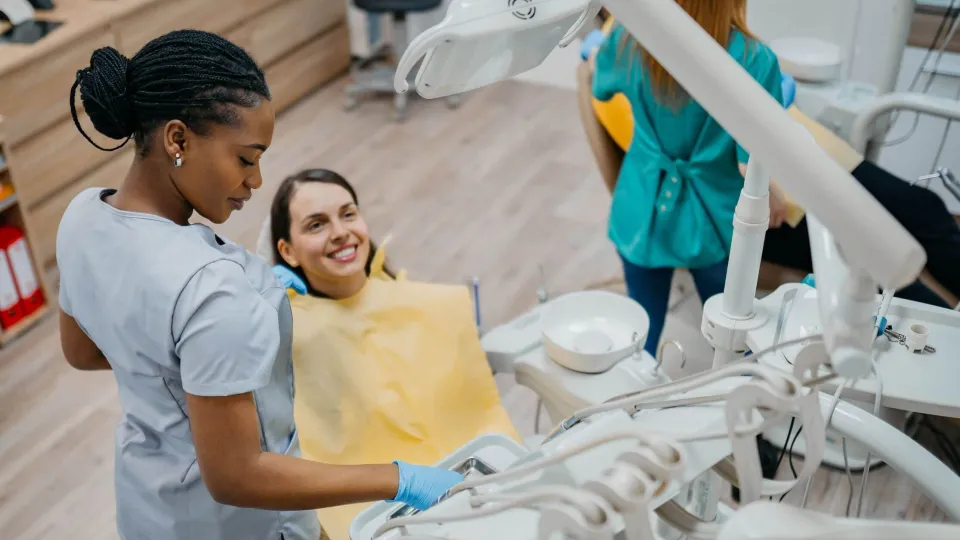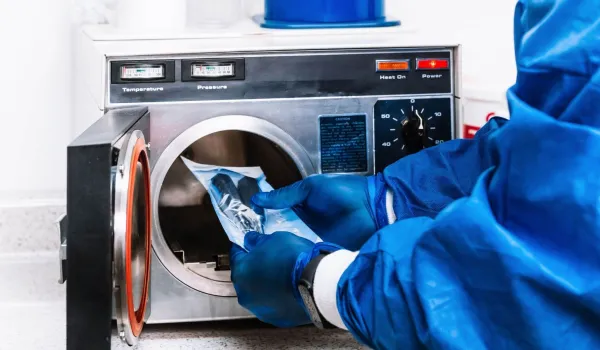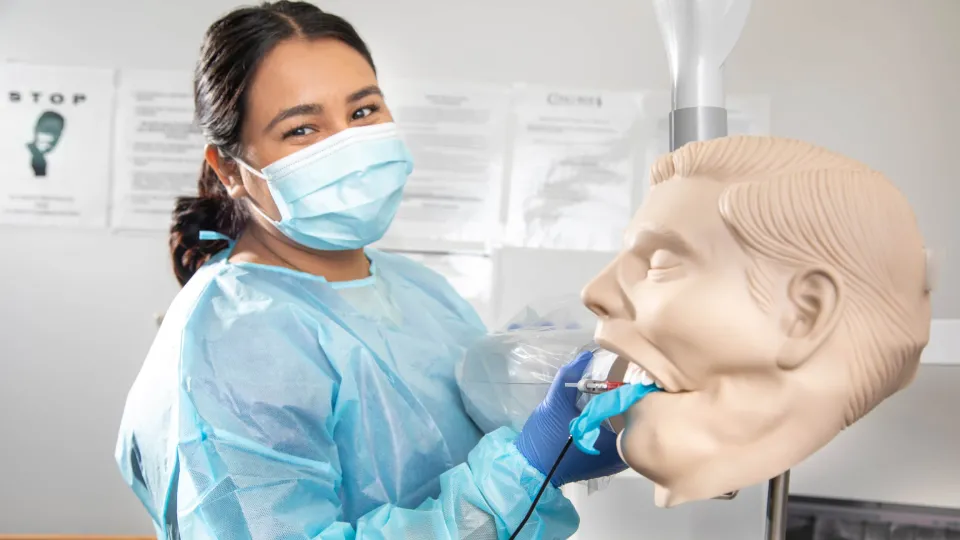
Dental assistants are among the most important employees in any dental office, playing a critical role in office operations and patient care. For many patients, the dental assistant is their primary point of contact throughout their visit. If you have a passion for helping people maintain good health, you can take on this essential position and assist in forming the backbone of a dental practice. From providing direct support to the dentist to smoothing overall operations throughout the office, good dental assistants help with it all.
What Is the Role of a Dental Assistant?

Dental assisting is the overall task of providing care and help to patients and other dental professionals in a dental office. These professionals provide both administrative assistance and clinical support, making this a unique career path. Dental assisting is well-suited to individuals who enjoy performing a wide range of tasks and prefer plenty of diversity in their day.
The exact scope of a dentistry assistant's job varies by state and employer. Each team has its unique hierarchy, and the duties of a dental assistant are vast and varied enough to accommodate many different methods of operation. Dental assistants may update patient records, perform dental X-rays, schedule appointments, and more.
Related: Dental Assistant Duties and Work Locations
Duties and Responsibilities of a Dental Assistant
It's important for anyone considering this career to understand the full scope of what dental assistants do. They handle both administrative tasks in the office and direct patient care. The duties of a dental assistant may include:
- Scheduling patient appointments.
- Answering questions from patients and families.
- Maintaining patient records.
- Assisting patients with billing and payment questions.
- Providing patient referrals.
- Answering phones.
- Managing inventory throughout the dental office.
- Ordering supplies as needed.
- Showing patients to the dental chair and making them comfortable.
- Preparing the treatment room to ensure cleanliness and comfort.
- Keeping treatment rooms stocked with supplies.
- Calming anxious patients.
- Sterilizing and setting out dental instruments.
- Processing X-rays.
- Exposing radiographs.
- Completing lab work.
- Making dental impressions.
- Applying fluoride.
- Applying dental sealants.
- Performing coronal polishing.
- Handing instruments to the dentist during procedures.
- Using the suction hose and other equipment to keep the patient's mouth dry as the dentist works.
- Monitoring nitrous oxide.
- Maintaining infection control protocols.
- Providing instruction to patients on oral hygiene.
It's important to clarify the scope of this job with a prospective employer, as policies vary greatly from one office to the next.
Types of Dental Assistants
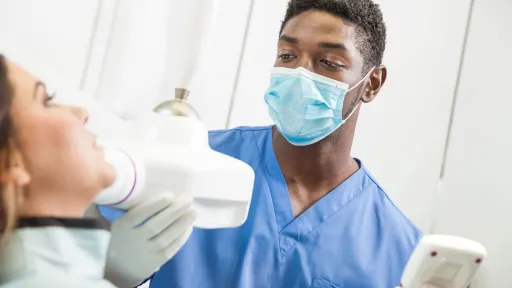
A career as a dental assistant can take many forms. Keep in mind that the opportunities available with these designations vary by state. Some areas have strict requirements for a dental assistant about performing certain procedures while others have very few rules at all. Depending on your education, certification, and role, you may be any of the following.
Dental Assistant
To work as a basic dental assistant, the level of formal training may vary. Dental assistants must work under the close supervision of a dentist. They're limited in the tasks they can perform, though the exact limitations vary by state and are often left to the employer. Even in California's strict environment, a DA can make impressions, take X-rays, remove sutures, and apply topical fluoride.
Registered Dental Assistant
A Registered Dental Assistant has completed a board-certified program or accumulated equivalent work experience to attain registration at the state level. The Dental Board of California awards this licensure to professionals in this state and maintains one of the most rigorous programs in the country. RDAs can take endodontic cultures, place orthodontic separators, perform coronal polishing, and do other more complex tasks.
Certified Dental Assistant
Certified Dental Assistants receive their designation at the national level. The Dental Assisting National Board administers three exams that participants must pass to acquire this certification. These exams cover infection control, radiation health and safety, and chairside assisting.
Registered Dental Assistant in Extended Functions
The state of California offers the RDAEF designation to professionals who have completed a board-approved RDAEF program, taken a course in pit and fissure sealants, and passed a written examination. This designation allows the RDAEF to perform more advanced tasks, such as taking impressions and fitting trial endodontic filling points.
If you're interested in advancing your career, you can further your education with options such as the Dental Assistant Expanded Functions course or the certification program for Dental Radiographers at Concorde Career College. Concorde also offers an online Dental Hygiene Associate Degree program.
Related: Dental Assistant Vs. Dental Hygienist
Where Can Dental Assistants Work?
According to the Bureau of Labor Statistics, 90% of dental assistants work in dentists' offices. A very small percentage work in physicians' offices or in government facilities. Dental assistants may spend part of the day on their feet moving around the office. They typically sit at a desk to perform administrative tasks or beside the patient's chair for clinical procedures. Dental assistants wear scrubs and protective equipment such as masks, gloves, and safety glasses.
Most dental assistants work full-time, though they may have weekend or evening hours depending on the appointment flexibility of the clinic. If the supervising dentist takes emergency calls off hours, dental assistants may be called in to assist with these appointments as well.
Education and Training
The required training and education to work as a dental assistant varies by state. In many states, such as Alabama, Hawaii, Idaho, Kansas, Illinois, and Louisiana, no formal training is required. Other states require training for certain procedures. For example, you need special training for coronal polishing in Arizona and for X-ray imaging and nitrous oxide monitoring in Arkansas. Several states require radiology training, including Rhode Island, Pennsylvania, Ohio, and New Jersey.
Some states mandate formal training for all dental assistants, but those specifics also vary. California has some of the strictest requirements, mandating that all dental assistants complete a board-approved dental assistant training program, an eight-hour infection control course, radiation safety training, and a course on the Dental Practice Act.
Even when formal training isn't mandated, it is likely always preferred. Though a state may not require dental assistant training, an employer can set their own rules and requirements. Nearly all dental offices will prefer a well-educated dental assistant to someone hoping to learn on the job.
Accredited programs typically take about a year to complete at a community college. Concorde offers a diploma program at select campuses, which are institutionally accredited by the Commission of the Council on Occupational Education or the Accrediting Commission of Career Schools and Colleges, that students can complete in as little as nine months, as well as a more in-depth associate degree program available to graduates of Dental Assistant program that takes a minimum of eight months. Dental Assisting programs include classroom instruction, laboratory work, and supervised hands-on training. These programs cover topics such as:
- Dental specialties
- Dental radiology
- Dental terminology
- Patient care
- Diagnostics
- Orthodontics
- Materials and procedures
Related: Dental Assisting & Dental Assistant (Diploma & Associate Programs)
Career Outlook
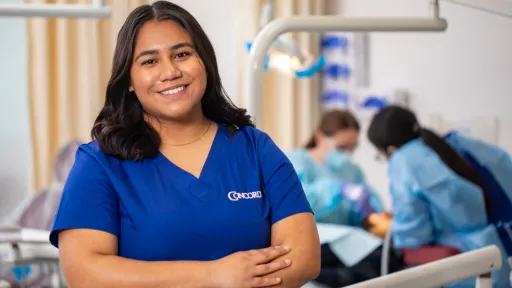
According to the Bureau of Labor Statistics, job opportunities for dental assistants are projected to increase by 8% from 2023 to 2033. Over this period, there should be around 54,900 openings for dental assistants each year. Continuing research and public education on proper oral health is projected to increase the demand for dental professionals and provide ample stability in this career field.
Related: Qualities of a Successful Dental Assistant
Advancing Your Career as a Dental Assistant
As a dental assistant, you can choose to do your work within a certain specialization. This gives you the opportunity to focus your skills and efforts on the procedures or populations that you're most interested in. Examples of dental assistant specializations include:
- Pediatric dental assistant: These dental assistants work with children, which requires greater patience, interpersonal skills, empathy, and behavioral management techniques.
- Periodontal dental assistant: Periodontal dental assistants specialize in maintaining gum health and treating gum disease. They assist with root planing, scaling, and maintenance checks.
- Endodontic dental assistant: Endodontic dental assistants specialize in issues related to root canals and dental pulp. They use specialized instruments and X-ray techniques.
- Orthodontic assistant: Orthodontic assistants work with patients who have aligners and braces. They specialize in advanced cleaning techniques and orthodontic procedures such as placing, removing, and tightening braces.
- Oral surgery assistant: Dental assistants specializing in oral surgery assist dentists as they place dental implants, extract teeth, and perform other surgical procedures. They're trained in post-operative care, advanced sterilization, and specialized equipment.
In Conclusion
Is dental assisting a career that you're interested in? You can prepare for a new career in just months with a focused educational program such as the Dental Assisting and Dental Assistant Diploma and Associate Programs at Concorde. These programs can help you build an educational foundation in the dental industry and may equip you for a fulfilling healthcare job as a dental assistant. For more information on career training as a Dental Assistant, contact our team at Concorde.
“Dental Assistants.” Bureau of Labor Statistics. https://www.bls.gov/ooh/healthcare/dental-assistants.htm#tab-3
“Dental Assistants.” Bureau of Labor Statistics. https://www.bls.gov/ooh/healthcare/dental-assistants.htm#tab-6
Take The Next Step Towards a Brighter Future
Interested in learning more about our Dental Assistant program?
We have a Concorde representative ready to talk about what matters most to you. Get answers about start dates, curriculum, financial aid, scholarships and more!

